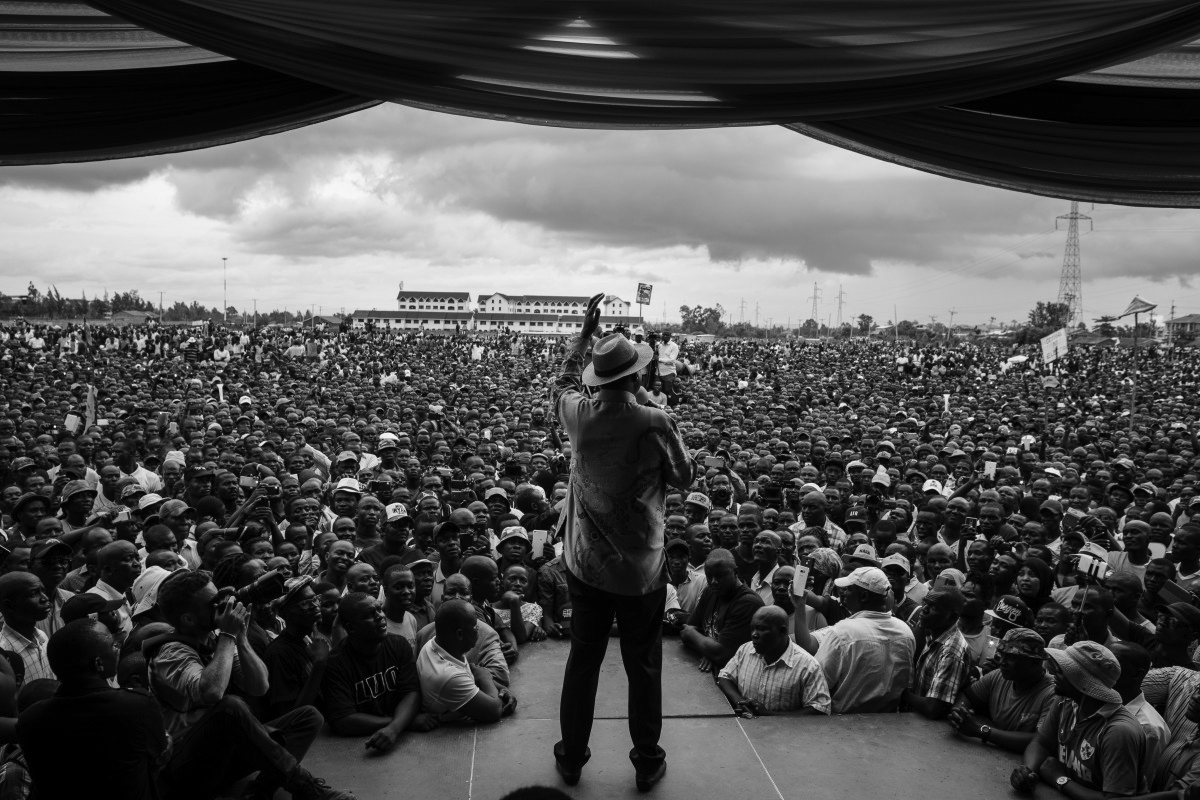Following an unprecedented nullification of the August 8 elections by the Kenyan Supreme Court, Kenya is now clouded in uncertainty as another election is set for October 26. After the August 8th elections, the Independent Electoral and Boundaries Commission (IEBC) declared President Uhuru Kenyatta the winner with 54 percent of the votes. This is the very same commission that Raila Odinga, Mr. Kenyatta’s opponent, criticised for being “rotten.” Odinga was further validated by the Supreme Court’s ruling that the elections were not “conducted in accordance with the constitution” and by Chief Justice David Maraga’s declaration that they were “invalid, null, and void.”
Justice Maraga was backed by four of the six Supreme Court judges presiding over the petition, brought forth by the Odinga-National Super Alliance. The court’s decision was backed by evidence showing that the election was not conducted, “in a manner consistent with the dictates of the constitution.”
Blaming the IEBC, the court found fault with the transmission of results from various polling stations. Odinga’s alliance has a different viewpoint and took the opportunity to besmirch Kenyatta’s Jubilee Alliance.
Raila Odinga, who is now 72, said: “We won the elections, and we are going to win them again.”
Considering the combative nature of the elections and machismo between the two leading candidates, the people’s blame would not be pointed at the commission but rather at the the opposing candidate. Kenyan politics is incredibly susceptible to ethnic divides and patrimonial expectations. Individuals vote for candidates from their own tribal groups in hopes for doting patronage. Most voting Kenyans pledge their allegiance and votes to “their” man, irrespective of their proposed policies and current state of affairs.
Uhuru Kenyatta, 55, the “digital president,” doused the flames of impending ethnic violence in a televised address, saying that it is “important to respect the rule of law, even if you disagree with the Supreme Court ruling.”
The acting president further added: “Your neighbour will still be your neighbour regardless of what has happened… My primary message today to every single Kenyan is peace. Let us be people of peace.”
However, as the rerun elections approached, the Incumbent would shift back to a combative tone. In a rally, Kenyatta challenged Justice Maraga’s decision, warning that, since the election was annulled, he was once again president, not president-elect.
With a history of intimidation
, Kenyatta did not disappoint. He added: “Do you understand me? Maraga should know that he is now dealing with the serving president.”
“We are keeping a close eye on them. But let us deal with the election first. We are not afraid.”
After a few days of peace and rest, all seemed well; the votes were to be re-conducted, and that was it. However, in the time between the nullification and the impending rerun, IEBC officials Ezra Chiloba took a three week leave, and Roselyn Akombe, the logistics commissioner, fled to the United States.
To Kenyans, that is old news. The breaking news is this: Raila Odinga announced on October 10 that he is withdrawing from the October 26 rerun election.
The masterful opposition leader was not submitting to the might of his incumbent opponent, instead, Odinga was employing political brinkmanship. Because of his low confidence that the rerun would yield a different and fairer outcome, his hand was forced. The Jubilee Alliance plans to pass election reform laws, which would give them partial supervision over the IEBC.
Raila quit hoping that the election timeline would be extended, and that the presidential rerun would be open to more than the two leading opponents: Kenyatta and Odinga.
Due to constitutional laws in Kenya (Article 138), the June nominations for the 2017 elections are still valid. So, Kenyatta cannot be inaugurated as president automatically, even though his leading opponent withdrew. Furthermore, due to Odinga’s withdrawal, the election clock might be reset, and all candidates might seek a fresh nomination with a new election timetable, as set out by the elections act and regulations.
I am writing this on October 24, 2017 and news of any changes to the rerun are yet to come in.
Few things are certain, Raila remains on the ballot despite his withdrawal, according to the IEBC. Moreover, the repeat election will cost Kenya approximately ten billion Kenyan Shillings.
Elections in Kenya are far more than an overnight affair, involving voters staring at statistics on a screen. They are conversational, controversial, and engaging.



